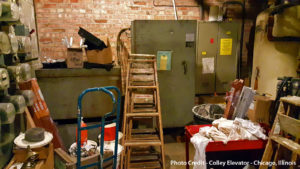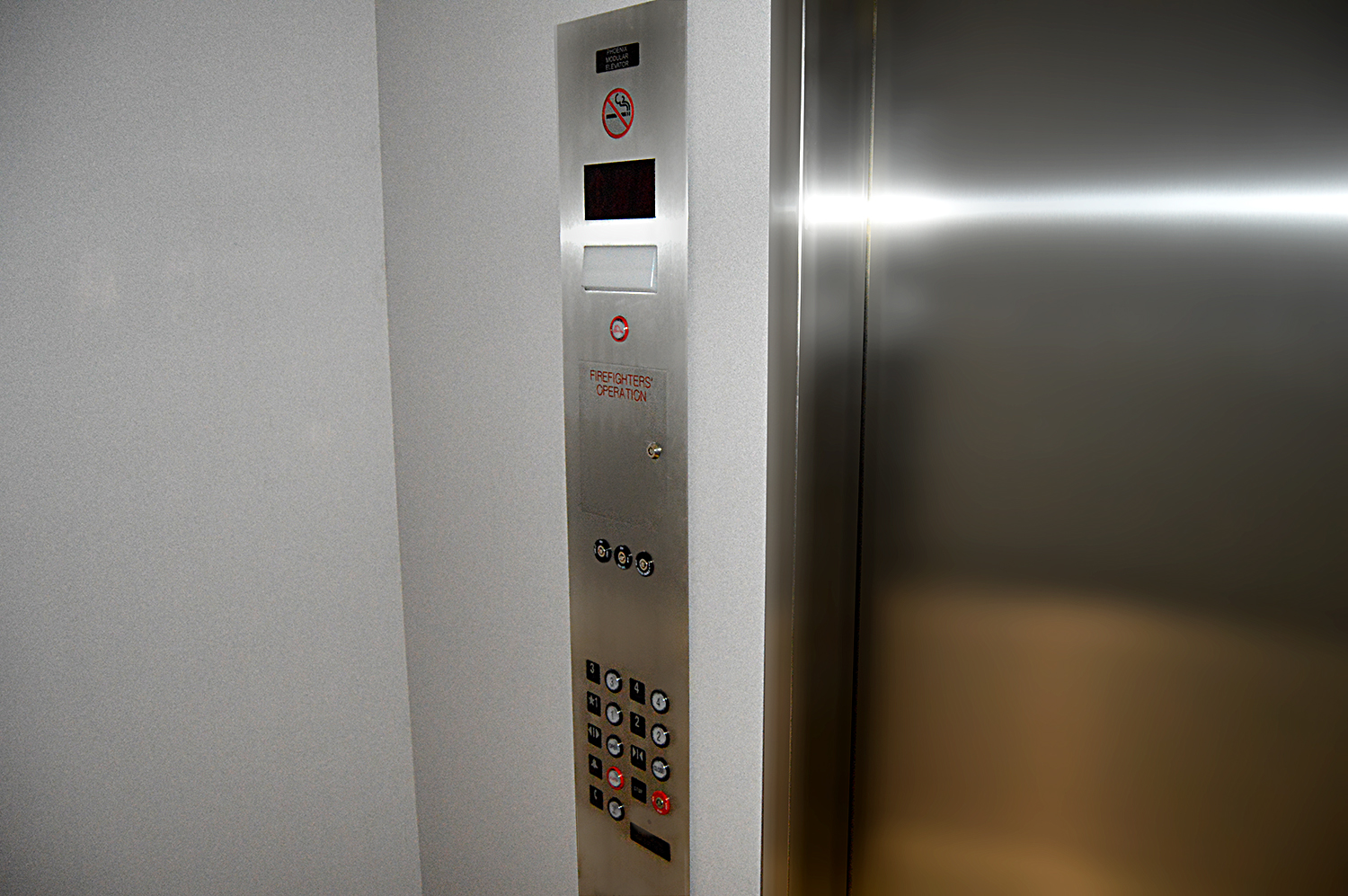LULA Means Limits
January 19, 2017Friendly Elevator Technician
February 2, 2017Elevator Machine Room – Not a Broom Closet

There is an old joke that the long in the tooth elevator folks repeat to the new guys. If they happen to make the mistake by saying an elevator has just one stop, the rookie will inevitably hear, “It’s an elevator, not a broom closet.” The veteran will be quick to point out that every elevator has at least two stops or it simply will be a broom closet with expensive doors. Unfortunately, they don’t have a similar joke about the elevator machine room with the punchline being “It’s a machine room – not a broom closet.” Ba dum tshh.
Machine rooms don’t start out being a catch-all, but the open space is a tempting sight for everyone in a crowded building. The result is that some building owners or managers see lots of real estate in a machine room that is going unused, and they lick their chops with envy and desire to fill that void with all kinds of stuff. Just as often, it is well-meaning employees seeking a place to dump items they want to get out of their way. Lastly, the machine room can become a hiding place and lounge for refuge-seeking smokers on winter days and those looking for a quiet place to take a coffee break.
As a result, the elevator machine room often become a repository for cleaning materials, flammable liquids, brooms, buckets, mops, ladders, boxes piled to the ceiling, files and filing cabinets, banker boxes, rags, light bulbs, chairs, Christmas ornaments, newspapers, cigarette butts, books, magazines and old candy wrappers. You get the point.
[vc_button label=”Free Quick Quote” target=”_self” size=”small” style=”light” url=”https://phoenixmodularelevator.com/free-quick-quote/”]

But the elevator machine room is not a break room, storage area or broom closet, and the American Society of Mechanical Engineers (ASME) code for elevators makes it clear that the space needs to be left open and safe.
There is a Standard to Follow
ASME is the American National Standard for elevators, or the Bible as far as elevator requirements are concerned. The current national standard states there must be a path with a minimum width of 18 inches to get to anything that must be maintained. There must also be at a minimum of 18 inches provided in the direction required for maintenance access. Furthermore, ALL ACCESS HAS TO BE SAFE AND CONVENIENT!
Simply put, stepping over buckets and mops is neither safe nor convenient. Storing flammable materials like paint and industrial strength cleaning fluids in the machine room is not safe. Also of note is that the door must be self-closing and self-locking. The machine room is to be a secure area for properly trained personnel only, not a break room for employees hiding from the boss or the boss hiding from the employees.
Why so picky? For good reason. The machine room is a space specifically designed for the machinery that moves the elevator, and very strict codes exist for safety of the elevator technicians and the public who ride in these every day. For instance, at Phoenix Modular Elevator, the machine rooms we provide are designed for the singular purpose of housing elevator machinery and nothing else, and most other elevator companies, engineers and architects do the same. So unless you are the exception and not the rule, the machine room needs to be emptied of all the extraneous items that have found their way into the room.
Not Every State is the Same
Lastly, each state may have additional requirements regarding the elevator machine room, but none of the requirements can be less than the national code. Massachusetts, for instance, requires 24 inches on two sides of the components in the machine room and a 24 inch clear path. Make no assumptions about the proper condition of your machine room. It is important to know what your jurisdiction requires and to do that, a simple phone call to your service provider will probably answer your questions. Otherwise, feel free to contact us at Phoenix Modular Elevator.
You may be losing a broom closet, but you will be gaining peace of mind knowing that you are in compliance with this important part of safety regulations!



